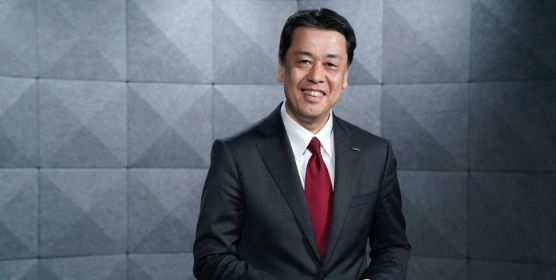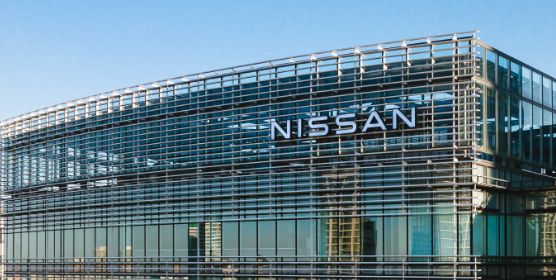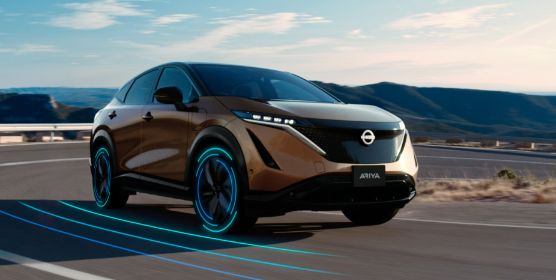Yasushi Kimura

Formulation of “Nissan Next”
In June 2019, I was appointed the chair of the Board of Directors. In assuming this position, we were transitioning to a company with three statutory committees, and I was strongly aware that strengthening our corporate governance was a top priority. Instead of making comparisons to previous Board of Directors, I am striving to manage the Board of Directors on the basis of what role it needs to play now, based on Nissan’s current situation.
One area of focus that has taken up considerable time has been the discussions related to the formulation of the transformation plan “Nissan Next.” This is an extremely practical four-year plan that seeks to correct our corporate stance and lay the foundation for us to take the next step forward. It is based on a firm understanding of the current situation, with the aim of creating sustainable growth and stable profits. The formulation of the plan is the task of the executives, but as independent outside directors we can express our opinions. Given our expertise, we can accelerate the progress made by management in implementing the plan. In this sense, I think that the independent outside directors have an important role to play. My request to management, with regard to the formulation of the Nissan Next plan, was to clearly distinguish between what Nissan can definitely accomplish on its own from areas like sales targets that can be influenced by outside factors, and promptly accomplish those things. As illustrated by the COVID-19 pandemic, car sales are strongly impacted by the external environment. However, such aspects as cost-cutting for vehicle manufacturing are under Nissan’s own control, so no excuses are allowed. I conveyed to management my hope that Nissan will clarify such goals and then do its best to achieve them.

Energizing the Board of Directors to ensure transparency and fairness
The Board of Directors for any company needs to be transparent and fair. I think these two points are particularly important in the case of Nissan as a company whose pressing task is to restore trust. I think that my primary role as chair is to energize the Board of Directors, but the precondition for that is the need to ensure transparency and fairness. One encouraging sign for me upon assuming the role of chair, is that all of the board members were enthusiastic about building a new system of governance and actively exchanged ideas without the need for me to encourage them to do so. For such an important topic as this, I try to make sure that every board member has the chance to express his or her opinions. However, it is a normal state of affairs at any company for opinions to be expressed at a meeting of the Board of Directors, so the fact that some Nissan executives were surprised by the active discussion shows the scale of the problem that existed in the past.
I think that Nissan can be praised for its effort to improve its governance system. The discussion within the Board of Directors has been progressing in a healthy manner and communication with executive management has been good. For the relation between the executives and board members, it is important to have a balance between respect and a certain distance so that each side can stimulate the other on a foundation of trust, and I think that creating such a relationship can ensure the effectiveness of the Board of Directors. I view this as another important aspect of my role as chair. I am focused on making sure that the discussions among the board members are energetic and at the same time highly productive and constructive. The Board of Directors is an organization that is pursuing a goal, so it would be meaningless to engage in discussions that bear no relation to that objective.
Another absolute requirement for board members, who are participating from an independent standpoint outside the company, is to verify whether the executives are managing the company in an appropriate way, based on an impartial and fair outlook. I hope that Nissan’s executive management will advance with confidence toward their goal as we closely monitor the situation, aware of the expectations of a wide range of stakeholders—from shareholders to Nissan employees.
Achieving long-term growth by addressing environmental, social and governance (ESG*) issues
Moving forward, I think one topic to take up in discussions among the Board of Directors, including independent outside directors, will be the long-term management approach that should be taken.
During the first year of my participation in the Board of Directors, the focus was on the issue of governance. After that, the issue of the COVD-19 pandemic arose. In addition, there was the issue of the transformation confronting the auto industry as a whole. We spent a lot of time in trying to sort out these three problems, but discussion is still needed on how we can solve these issues in the future. I have a great interest myself in the overall transformation of the auto industry.
I was engaged in work as an executive in the oil industry. At that time, I was in the position of receiving advice from independent outside directors. There are many points in common between the oil industry and the auto industry. It is no exaggeration to say that those two industries were the backbone of development over the past 100 years. However, the negative aspects of the pursuit of affluence up to now have come to the surface. Previously, the oil and automobile industries could be successful as long as they pursued efficiency and provided good products, but now they have to aim higher than that. It is also necessary to consider problems related to CO2 as well as the issue of traffic accidents when it comes to automobiles. Figuring out how to solve such problems has become a major theme for society as a whole, and executives have to be fully aware of this transformation in considering the direction for their business. Nissan is a company that has pioneered electric vehicles (EVs) ahead of other companies, but now vehicles are incorporating aspects that expand beyond the realm of automobiles, such as “connected cars” that are connected to the Internet. I think that it will be extremely important for Nissan to indicate the direction it will take in confronting this enormous transformation of the industry. I hope that I will be able to contribute positively in some way as chair during this period, which will require the company to make a major decision.
The ESG initiatives, which include the environment, are an area of great interest to stakeholders. Nissan has many cutting-edge initiatives, but many other Japanese companies have been earnestly engaged in efforts related to “E” (environmental) and “S” (social). However, Japanese companies have not done a good job generally of conveying this to society at large. I think it is important to make such information generally known on the basis of first sharing information within the company and clearly positioning it.
As for the area of “G” (governance), Nissan’s new system has been in place for a year and three months, and now decisions are being made with regard to give shape to the fundamental system and stabilize management. My view of the situation is that Nissan is finally becoming the type of company that can meet the expectations of its various stakeholders, including shareholders and employees. I say “is becoming” rather than “has become” because the full results have not yet been generated. As achievements are gradually built up, the next step can be taken. And that will create the sense of real forward progress. But when it comes to enhancing governance, it is necessary to always maintain that sort of mindset.
- Environment, Social, Governance
Published in January 2021























